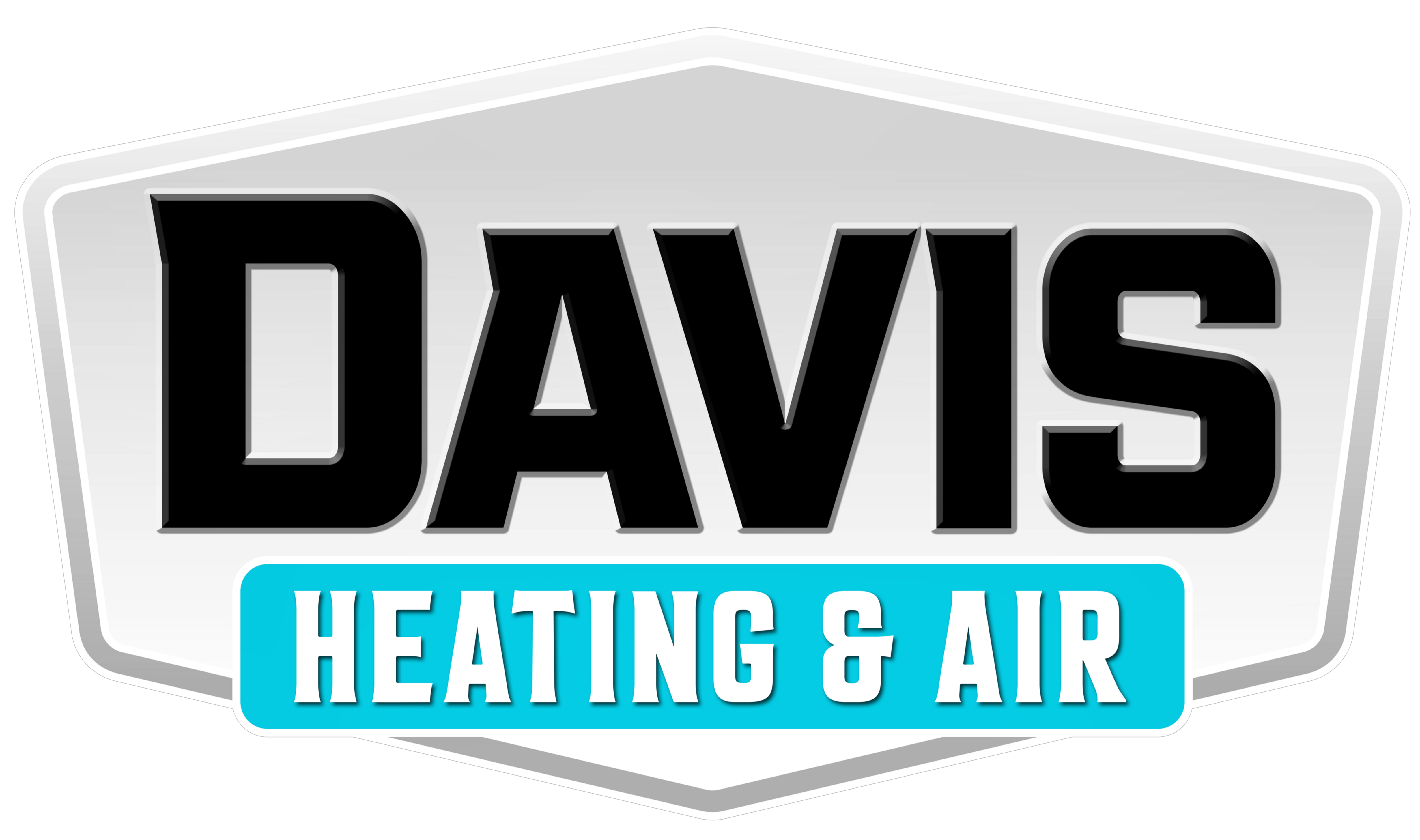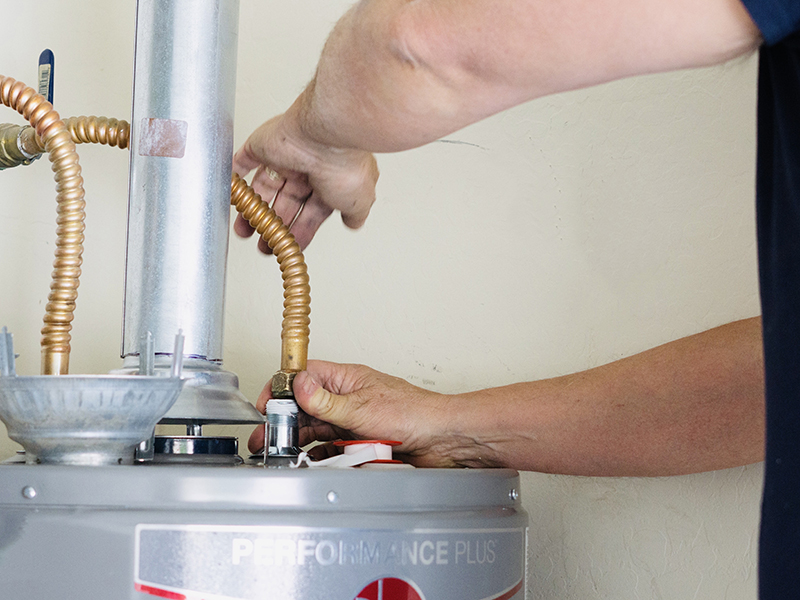Most major appliances, particularly as they get older, make noise from time to time. The power-vented water heater/standard home water heater is no exception. While some noises can indicate problems, many are a natural part of the unit’s function.
When concerned about your water heater exhaust pipe making noise, it is essential to know the differences in your unit’s noises before calling for repairs or replacement. Contact Davis Home Services, Levittown’s top-rated plumbing services, if you are unfamiliar with your water heater’s noises.
Naturally Expanding Pipes – Ticking and Creaking
Most home water heater units use copper piping. Copper pipes expand when hot water runs through them and reduce when the hot water is no longer flowing. This expansion and reduction are normal.
At installation, piping for appliances such as water heaters fit snuggly behind walls and within units. This snug-fitting is as much to keep the piping in place as to protect the piping from exterior damage. There is little wiggle room available.
Copper piping will stretch and scrape against any metal or wood surrounding the piping as it naturally expands. This expansion results in a ticking sound.
The copper materials will squeeze and tighten back to their original shape as it cools and reduces. This tightening creates a creaking sound.
While some tightening and creaking are natural, you do not want this movement to occur too often. Slightly reducing the water temperature as it flows through the pipe minimizes this movement and noise.
Insulation will also prevent excessive expansion and reduction while muffling natural ticking and creaking sounds.
Damaging Mineral Build-up – Popping
The water within your water heater requires flushing out from time to time. Most homeowners do not realize this necessity. Furthermore, most homeowners don’t think much about their water heaters unless disaster strikes.
The water heater tank is often a large metal tube or box filled with water. Water contains minerals that build up, calcify, and damage the interior tank walls with rust and corrosion. Tankless water heater systems also require flushing because mineral buildup, rust, and corrosion can occur within the water pipes, including the vent pipe.
Mineral build-up along walls or pipes creates a rough interior surface that causes water to form bubbles. The bubbles burst and make popping sounds when the water is heated. Regularly flushing the system prevents build-up and stops the popping sounds.
If you have a power-vented water heater, flush your water as often as you vent the gases. You should also note that power-vented water heaters are naturally noisy, and this noise level will not decrease over time. In this case, your water heater exhaust pipe making noise is a natural occurrence.
Halting Water Flow – Banging and Clanging
Pressure builds up within your water heater piping system when the water flow turns off too quickly to or from your water tank. This buildup creates a pressure wave that continues until it hits the end of the pipe. This pressure wave makes a loud banging or clanging sound as it hits the pipe wall.
Minor banging or clanging alone is not a concern. Minimize banging and clanging by turning the water on and off more slowly. Turning the water on and off more slowly decreases the pressure building. As a result, you should no longer hear the unnatural loud banging or clanging noise.
Significant pressurized impacts on the piping result in interior cracking and bursting pipes. Increased banging or clanging should be examined by a service professional. A service professional can install an automatic shut-off valve or an air chamber to prevent quick shut-offs and pressure build-ups.
Loose Pipes or Fittings – Rattling
Pipes and fittings should be tight to prevent leaks, air pockets, and exterior damage. Loose copper piping makes a rattling sound.
Therefore, loose piping can signify problems in the piping system. So, it is essential to investigate loose or rattling piping immediately to prevent further damage.
Loose fittings don’t just refer to the pipes and water lines that allow water flow. A water heater’s heating system needs tight fittings and fixtures to ensure smooth and proper operation, mechanically and electrically. Loose fittings in the heating unit, including the exhaust fans, can make rattling noises that should be evaluated and managed.
Resolve loose piping by tightening the fixtures or fittings. It is also possible to cushion or insulate the piping to prevent rattling sounds and protect the pipes.
When Should You Be Concerned?
Most of these noises are natural and expected from time to time. If the noises remain infrequent, they are not an issue, and you can manage them with the simple fixes discussed here. Like anything else that starts as a minor issue, noise problems can quickly escalate to much larger issues if not appropriately addressed.
However, even naturally expanding and decompressing pipes can become a massive problem over time. This natural occurrence can cause issues because frequent expansion and decompression create cracks and defects in the metal surface. These cracks may eventually lead to a burst pipe, a potentially disastrous situation.
Though naturally occurring, this pipe movement does not mean you can’t prevent cracked or burst pipes. Insulate pipes whenever possible, ensure all fittings are tightened properly, and routinely flush your water heater and pipes. Lastly, call a professional to inspect your unit immediately if you suspect any significant issues.
Get Water Heater Help Today from Davis Home Services
Davis Home Services is locally owned, licensed, and certified to handle all your plumbing needs in Levittown, NJ, and the surrounding areas. We use only top-quality professional equipment, and our work comes backed by service and product warranties to ensure we do the job right. We offer free consultations and same-day services to manage your issues quickly and efficiently.
Contact our trusted, professional team of technicians today at 844-226-9872. We can help you schedule an appointment while debunking common plumbing myths. Altogether, we do everything possible to resolve your water heater exhaust pipe making noise.


